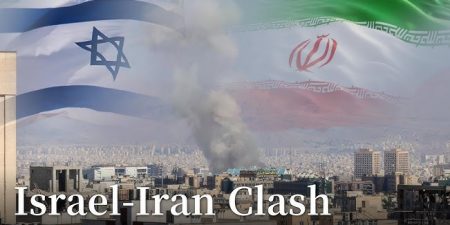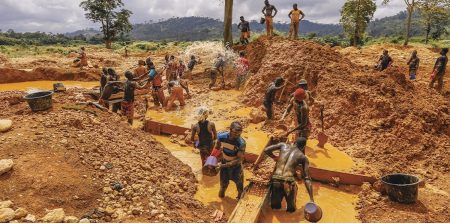 11 September 2016, Sweetcrude, Port Harcourt — In fairness to the youngsters known by the ominous moniker of “The Avengers”, agitation for separatism by the peoples of the Lower Niger, especially of South-Eastern Nigeria predates Nigeria’s independence from colonial rule. From the time the British held sway over the territories and peoples that constitute Nigeria, the ethnic nationalities of the Lower Niger have reluctantly endured their fusion into a political arrangement with the peoples across the Northern reaches of the Niger. At the time, Oil and Gas did not factor into their arguments; they were simply reluctant to relate to folks that were very different from them and whom they feared could dominate and subjugate them to alien ways. Their fears at the time were not unfounded as the political authorities that the British aligned wit in the North, the Fodio Caliphate, were known for ferocious religious crusades that had decimated communities, societies and even kingdoms in Africa before the intervention of the British. With the resurgence of radical Islamic movements in the Arabian Peninsula, the Horn of Africa, North Africa and some spots in West Africa, the old fears of religious subjugation are being rekindled.
11 September 2016, Sweetcrude, Port Harcourt — In fairness to the youngsters known by the ominous moniker of “The Avengers”, agitation for separatism by the peoples of the Lower Niger, especially of South-Eastern Nigeria predates Nigeria’s independence from colonial rule. From the time the British held sway over the territories and peoples that constitute Nigeria, the ethnic nationalities of the Lower Niger have reluctantly endured their fusion into a political arrangement with the peoples across the Northern reaches of the Niger. At the time, Oil and Gas did not factor into their arguments; they were simply reluctant to relate to folks that were very different from them and whom they feared could dominate and subjugate them to alien ways. Their fears at the time were not unfounded as the political authorities that the British aligned wit in the North, the Fodio Caliphate, were known for ferocious religious crusades that had decimated communities, societies and even kingdoms in Africa before the intervention of the British. With the resurgence of radical Islamic movements in the Arabian Peninsula, the Horn of Africa, North Africa and some spots in West Africa, the old fears of religious subjugation are being rekindled.
Now, apart from the ancient concerns, the Avengers have, like their immediate predecessors, the Movement for the Emancipation of the Niger Delta, added political independence and resource control to the list. To drive home their point, the youngsters are “scorching” their own environments and attempting to make them unconducive for activities like oil and gas exploration. Without mincing words, the wish list of the Avengers reflects the general aspirations of the ordinary citizens of the South South and South Eastern Regions of Nigeria. The general feeling in these regions is that having endured the rape and pillaging of their environment for the benefit of strangers and the sustenance of an undesirable political contraption, it is mathematically more desirable to shrink the burden by applying the same resources to eleven or twelve states sharing cultural affinities and geographical contiguity of a secure nature. The recurrence of these waves of separatist agitations should inspire us to take them seriously and to sit with the agitators to agree on the measures or mechanisms to apply in addressing the issues for which they seek a separate state or agree on modalities for separation.
The primary responsibility of the Federal Government of Nigeria is to protect the political integrity of the country, especially against external aggressors. This is a solemn duty for which Nigerian Law has lent the commanding authority of Nigeria’s armed forces and provided a heavy sanction to aid the federal government against external and internal aggressors. The Law of Treason attaches basically to Nigerian citizens who act or omit to act in a manner that undermines the political integrity of the Nigerian State but I submit with the greatest sense of responsibility that the federal government has an equal and balancing duty to always gauge and indeed carry out periodic audits of the internal political trends that portend to challenge the political integrity of the state. It is my view that it is one of the duties of federal government to evaluate the levels of malcontent within the constituent states with a view to making recommendations to the relevant institutions in the polity for redress, balancing and even, yes, restructuring the state to accommodate valid concerns of some constituents. I posit further that a government that neglects to perform the second duty cannot protect its country from internal aggressors and by consequence, from treason.
Now, what indeed amounts to treason? Is it treason for a group of persons, a section of the country, some states and their indigenes to demand that by virtue of the ethnic diversity and dissimilar aspirations, each constituent is administered with funds or resources realised from its borders, indigenes and residents? Does it accrue to treason for a section, deprived of equal participation from the affairs of the state to aspire and indeed indicate a desire to leave that state for another? Does statehood imply compulsive political intercourse with tribes and cultures that are openly hostile to ethnic nationalities of other states? Can a state endure which demands a greater sacrifice from a section that is not only unwilling to make the sacrifice but envisages a political arrangement that runs on parallel lines across every paradigm common to all the constituents? Now the big question: Is it treason for states in the South-South and South East Regions, having endured four and half decades of the direst forms of political subjugation within Nigeria, to seek to fuse into a state that promises freedom and equality in solidarity?
Nigeria is a beautiful country that has the potential for greatness but successive governments have held on to policies that portend to tear it asunder. The people of the South East fought a war that was presented to them without a choice; the fallout of that war has been a policy that is not documented nor spoken of but which clearly excludes that region, the most productive region of the country, from the mainstream of Nigerian political affairs. In 1969, the Federal Government of Nigeria, prosecuting the Civil War that commenced in 1967, promulgated the Petroleum Act, ostensibly to appropriate the ownership and control of the Crude Oil deposits in the Eastern Region to have sufficient funds for the war. Forty-seven years after, only 13% of income accruing to the owner states has been returned to them. It is instructive to note that the Eastern Regional Government which had jurisdictional authority over the territories that produced Crude Oil between 1959 when oil production commenced at Oloibiri in the Eastern Region and 1967-69 when the oil producing territory became a theatre of war, the Government of Eastern Region did not appropriate a litre of Crude Oil for governance purpose!
Nigeria can still remain one strong, united country where the freedoms subscribed to by the comity of nations are actually protected and enjoyed in all the states of the federation, in which every collection of people work assiduously to mobilise their people and resources in healthy competitions to deliver to their peoples more freedoms, more infrastructure and more development than their neighbours.



